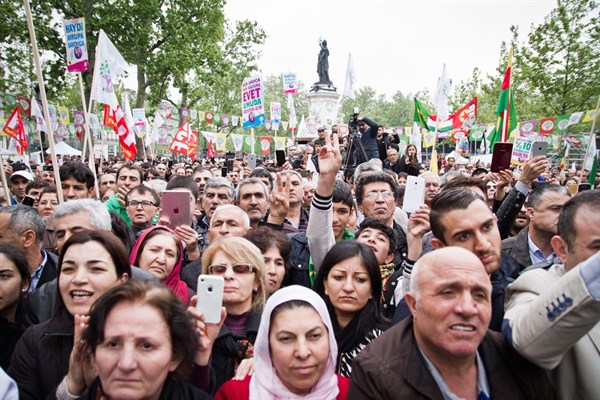Editor’s note: The following article is one of 30 that we’ve selected from our archives to celebrate World Politics Review’s 15th anniversary. You can find the full collection here.
In London, a group of Americans meet at a fundraiser in a private home in support of Hillary Clinton’s presidential campaign. Across the Atlantic, in Maryland, the construction of a $100 million mosque complex is funded by Turkey’s Presidency of Religious Affairs, or Diyanet. In Canada, the Ukrainian Canadian Congress lobbies the government to strengthen its official aid to Ukraine, while urging individuals to directly support the Ukrainian army by donating for the purchase of arms and equipment. What do all of these have in common? One answer is that they are all, arguably, examples of diaspora politics: transnational forms of political engagement that link constituencies in one state with a real or imagined “homeland” somewhere else.
Such forms of diaspora politics are not entirely new. The late 19th and early 20th centuries saw an abundance of transnational “homeland” activities around the globe: Irish groups such as the Fenians organized in the United States to oppose British rule in Ireland; Germany reached out to ethnic Germans around the world as a means of building a “Greater German Empire”; Chinese communities in the Americas mobilized to support the 1911 Revolution in China; and Jews around the world mobilized and organized around the cause of Zionism, or the idea of a Jewish homeland.

